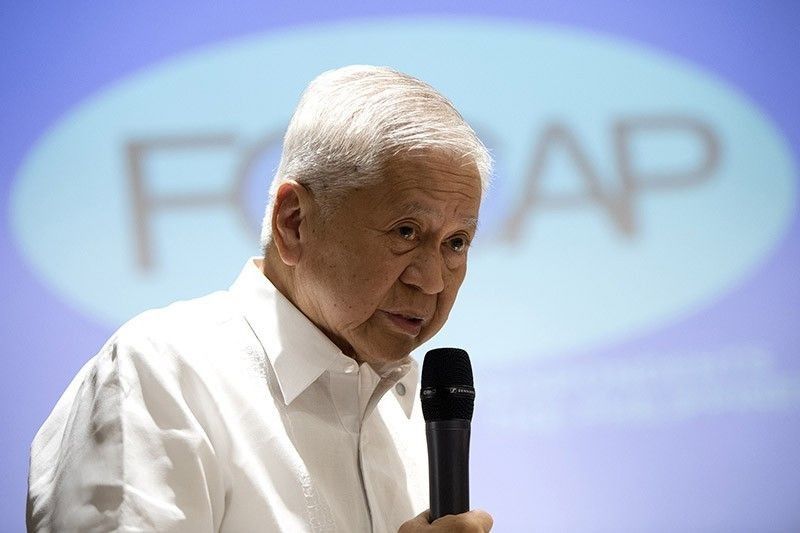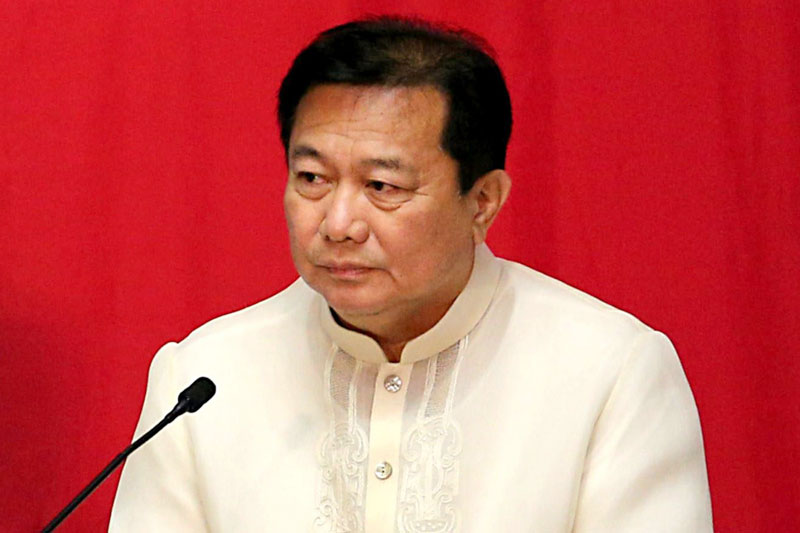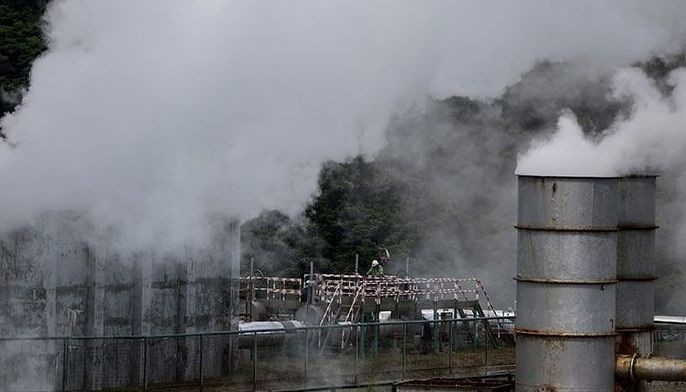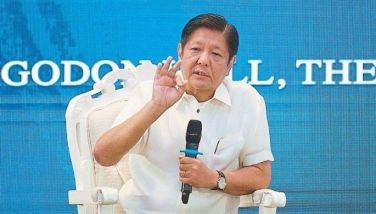Bringing up SCS arbitral ruling before UN futile — Palace

MANILA, Philippines — Bringing up the 2016 arbitral court ruling on the South China Sea before the United Nations General Assembly would be a “futile exercise,” as the international body has no power to enforce it, Malacañang said yesterday.
“For one, it’s futile exercise. Why? Because UN has no enforcement force,” presidential spokesman Salvador Panelo said in reaction to former foreign affairs chief Albert del Rosario’s suggestion that the administration take advantage of the 74th regular session of the UN General Assembly this month to drum up global support for the arbitral ruling.
“He is citing the case of Nicaragua. Did anything happen there? None. It remained the same,” Panelo said.
Del Rosario said the assembly would be an excellent opportunity for the Philippines to push its position on The Hague ruling, which invalidated Beijing’s expansive maritime claim and upheld Manila’s sovereign rights over its exclusive economic zone.
The country’s former top diplomat said the Philippines could present a case for the UN “to reassert that right is might and the rule of law must be upheld.”
He noted that Nicaragua in the 1980s filed a reparation case against the US before the International Court of Justice and got a favorable ruling. The US initially rejected the ruling but later extended significant financial aid package to Nicaragua.
Panelo said President Duterte finds his present approach on China effective.
“There is impasse but the talks are still ongoing. At the same time, he negotiates with respect to other areas of concern mutually beneficial to both (countries),” he added.
China has refused to recognize the arbitral ruling, saying it would only move to resolve its territorial row with the Philippines through bilateral negotiations.
Panelo said there would be no significant impact on the country’s position even if Foreign Affairs Secretary Teodoro Locsin Jr. talks about the arbitral ruling at the UN assembly in New York.
Locsin is scheduled to address the international body on Sept. 28. But in a tweet yesterday, Locsin said he doesn’t expect the Philippines to get enough support for its position since the world body is dominated by countries that are “grateful” to China for its “indisputable generosity in development aid.”
And unlike China, the Philippines has “nothing comparable to offer,” he said.
“We’ve always lost Non-Aligned Movement votes to include our arbitral award. My many good friends in UN vote against us,” he said.
“Sal, we gotta be realistic,” he said, apparently referring to Panelo by his nickname. “We can never ever give up the arbitral award. Our people will kill us in our beds and rape our sons if we do it. But we will never ever get UN to vote for arbitral award. So let’s leave it as is; move on to mutual beneficial cooperation. Such is life,” Locsin said.
Joint exploration
Meanwhile, energy officials said the Philippines and China are now preparing for joint oil and gas exploration projects in the West Philippine Sea, just as President Duterte and his Chinese counterpart Xi Jinping had agreed upon during the Philippine leader’s latest visit to Beijing late last month.
Responding to questions from Cagayan de Oro City Rep. Rufus Rodriguez during debates on the Department of Energy (DOE) budget at the House of Representatives, the officials informed congressmen that Manila and Beijing have created a bilateral task force to do the preparations.
The officials, who are not allowed to directly participate in plenary deliberations, provided their answers through Rep. Manuel Jose Dalipe of Zamboanga City, who defended the DOE outlay as an appropriations committee vice chairman.
Dalipe said the DFA chairs the Philippine side in the joint task force, with DOE as vice chairman.
He said the task group has met once and has agreed to draft an agreement that would govern the planned joint exploration projects in the West Philippine Sea.
“It will identify different (exploration) areas and possible commercial arrangements,” he said.
Following the President’s Beijing visit last month, Palace officials announced that the country would share 60 percent of whatever would be extracted, with the remaining 40 percent going to China.
“That is only the minimum,” Dalipe said, responding to Rodriguez. “Would that mean that our share could go up to 70 percent and even 80 percent?” Rodriguez, a former law dean, asked, to which Dalipe answered “yes.”
“But why would we even share 20 percent or 30 percent with them if the exploration areas are within our exclusive economic zone like Reed Bank where we have sovereign rights under the United Nations Convention on the Law of the Sea (UNCLOS) and the UN Permanent Court of Arbitration July 2016 ruling that favors us?” asked the Cagayan de Oro lawmaker. – With Jess Diaz, Pia Lee-Brago
- Latest
- Trending





























